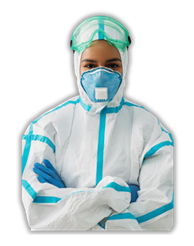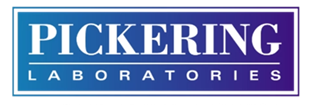Sponsored Content by ESSLABReviewed by Olivia FrostAug 27 2025
Protecting us from ourselves: Lab testing to ensure consumer safety
Responsible manufacturers work to ensure that the everyday items we use are not just practical and durable, but also safe. It is critical to understand how our bodies react to our clothing, including PPE, the furniture we sit on, wearable technology, and jewelry.
Our skin, the body's largest organ, shields us from harm, but there can be risks involved when the skin comes into contact with everyday products. As material science progresses, sophisticated testing procedures for protecting us from harm emerge.

Image Credit: ESSLAB
Skin plays a protective role
The skin is more than simply a passive barrier; it is an active, multifunctional organ that protects against hazardous microbes, physical injury, and UV radiation while also helping to regulate body temperature through perspiration. Sweat cools the body by evaporating from the skin's surface, maintaining internal homeostasis.
The skin is semi-permeable, allowing some substances to pass through its layers and into the body.
For example, topical drugs are absorbed through the skin and into the bloodstream. However, this permeability means that, in some situations, hazardous substances or chemicals from the environment can enter the body.
Human sweat is complex
Sweat contains far more than water and salt, it contains a rich variety of chemical components: amino acids, urea, and electrolytes.
As it evaporates, it leaves a thin but dynamic liquid coating on the skin's surface that might react with the objects we encounter. This can trigger irritation, allergic reactions, or allow harmful chemicals to enter the body.
Ensuring product safety through thorough testing processes.
To address these concerns, textile, fashion, PPE, and consumer electronics manufacturers must take extra precautions to ensure that their goods do not react negatively to perspiration.
Traditionally, textile makers focused on colour fastness and durability so garments kept their look after repeated wear.
Today's quality control procedures go much beyond appearance and performance. Modern textile makers are increasingly concerned about how materials will react to human sweat, influencing both product integrity and, more significantly, human health.

Image Credit: ESSLAB
Synthetic biologicals improve test accuracy and repeatability
The key to this sophisticated testing is the production of synthetic biologicals that resemble natural human liquids, such as perspiration. They contain essential elements like water, electrolytes, urea, and amino acids.
Pickering Laboratories has spent decades perfecting synthetic biologicals, making it a leader in the industry. Its research has resulted in the development of customized formulations of sweat, saliva, urine, gastric secretions, earwax, and other bodily fluids used as substitutes in product testing.
This enables manufacturers to properly simulate how their products and materials will interact with the human body over time, allowing them to discover potential dangers such as chemical leaching, skin irritation, or poisoning before they reach customers.
Wearable electronics products and jewelry - The need for specialized testing
Products such as fitness trackers, smartwatches, hearing aids, and wireless headphones must be examined for physical comfort, durability, and adverse skin reactions caused by chemical reactivity with the human skin.
For products that will come into continuous contact with our skin, it is even more important that the materials utilized in their production are safe and non-reactive.
Artificial sweat is vital for testing how prolonged exposure affects device materials. The goal is to ensure that metals, polymers, and coatings do not corrode, degrade, or leach hazardous compounds into the body over time.
Materials used in wearables, such as stainless steel, silicon, and plastic, are examined to guarantee that no harmful byproducts, such as heavy metals or plasticizers, are absorbed into the skin.

Image Credit: ESSLAB
The potential hidden dangers of synthetic materials
Another cause for concern is the extensive use of synthetic fabrics in everyday items such as clothing, upholstery, and furniture. Polyester, one of the most common synthetic fabrics, is known to release chemical compounds during manufacture and use.
Polycyclic aromatic hydrocarbons (PAHs) are a type of chemical often connected to various health concerns, including cancer. Similarly, flame retardants and other chemicals found in synthetic textiles and furniture cushioning can cause serious hazards if they come into prolonged contact with the skin.
Manufacturers are becoming aware of the toxicological dangers that these compounds pose. Manufacturers can use synthetic sweat and other bodily fluid analogues to explore how chemicals like PAHs and antimony (byproducts of polyester production) react with the skin and whether they are absorbed into the body.
These tests can help guarantee that potentially dangerous compounds are either eliminated from manufacturing processes through material science advancements or adequately confined to prevent exposure.
Few of us consider how clothes, gadgets, or furniture interact with our bodies. But, behind the scenes, manufacturers are working to protect us from these unseen risks.
ESSLAB: Ensuring safe, high-quality products through reliable analytical data
ESSLAB helps manufacturers by supplying certified reference materials (CRMs) required for precise, reproducible, and reliable product testing.
As a professional provider of both organic and inorganic CRMs, ESSLAB is a key distributor for Pickering Laboratories, a pioneer in the production of synthetic biologicals such as artificial sweat and other body fluid equivalents.
About ESSLAB
ESSLAB (Essex Scientific Laboratory Supplies Limited) is a leading global supplier of analytical consumables for chemical analysis. Founded in 1982, ESSLAB has built a strong reputation in the fields of chromatography, spectroscopy, and electrochemistry. Known for their expertise in precision liquid handling, ESSLAB offers a wide range of high-quality products that go beyond just laboratory instruments.
As a key distributor for some of the world’s top Reference Material producers, ESSLAB provides a full range of Certified Reference Materials (CRMs) — both organic and inorganic. These materials are essential for industries to ensure product quality, meet regulatory standards, and improve processes. ESSLAB’s commitment to quality has earned it a reputation as a "gold standard" supplier, trusted by customers worldwide.
The company is also known for its team of highly skilled specialists, who offer expert advice and customized solutions to help clients meet their specific needs. Whether it's navigating complex technical challenges or choosing the right products, ESSLAB’s team adds significant value to every customer interaction.
In addition to its high-quality products and expertise, ESSLAB provides exceptional logistics support. The company’s IATA-qualified team ensures safe and timely shipping of hazardous materials, following all relevant regulations. With a network of trusted carriers, ESSLAB can deliver products efficiently to customers in the UK, Europe, and the Middle East.
Why choose ESSLAB?
ESSLAB is the preferred choice for laboratories and scientific organizations for several reasons:
- IATA Dangerous Goods Regulations Authorized Shipper: ESSLAB ensures all shipments comply with strict safety standards.
- Flexible Shipping Options: The company partners with specialist freight handlers to provide tailored shipping solutions.
- International Trade Expertise: ESSLAB is accredited by the UK Department for International Trade and has over 20 years of experience in exporting.
- Responsive Customer Service: ESSLAB offers live chat, WhatsApp support, and priority response to inquiries.
- Accredited Quality Management: ESSLAB holds ISO 9001 (Quality Management) and ISO 14001 (Environmental Management) certifications.
- Large UK Stock Availability: ESSLAB maintains a large stock of chromatography consumables for quick and reliable delivery.
With its focus on customer satisfaction, high-quality products, and efficient service, ESSLAB is proud to be a trusted partner for laboratories, research institutions, and industries around the world. Whether you need reference materials, precision instruments, or expert logistics support, ESSLAB has the expertise and service to meet your needs.
Sponsored Content Policy: News-Medical.net publishes articles and related content that may be derived from sources where we have existing commercial relationships, provided such content adds value to the core editorial ethos of News-Medical.Net which is to educate and inform site visitors interested in medical research, science, medical devices and treatments.